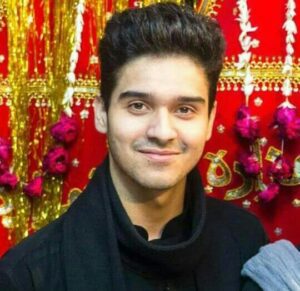Qaid Khaney Main Nouha Sakina Ka Tha Lyrics:
Sun Rahay Ho Sada Baba Jaan
Hum Kahan Aa Gaye,
Ghar Kahan Reh Gaya
Qaid Khaney Main Nouha Sakina s.a Ka Tha
Hum Kahan Aa Gaye
Ghar Kahan Reh Gaya
Yaad Aata Hai Guzra Zamana Mujhey
Ley Ke Baaho’n Main Jhoola Jhulana Mujhay
Main Bulati Rahi Aur Na Aaye Chacha a.s
Hum Kahan Aa Gaye Ghar Kahan Reh Gaya
Qaid Khaney Main Nouha Sakina s.a Ka Tha
Hum Kahan Aa Gaye
Ghar Kahan Reh Gaya
Yaad Aata Hai Payara Madina Mujhey
Phool Jaisa Wo Baba Ka Seena Mujhey
Wo Zamana Koi Phir Dekha Dey Mujhay
Hum Kahan Aa Gaye Ghar Kahan Reh Gaya
Qaid Khaney Main Nouha Sakina s.a Ka Tha
Hum Kahan Aa Gaye
Ghar Kahan Reh Gaya
Bhai Abid a.s Ney Chalna Sikhaya Mujhey
Apne Haatho’n Se Khana Khilaya Mujhey
Ab Ussi Key Liye Hai Dawa, Na Ghiza
Hum Kahan Aa Gaye Ghar Kahan Reh Gaya
Qaid Khaney Main Nouha Sakina s.a Ka Tha
Hum Kahan Aa Gaye
Ghar Kahan Reh Gaya
Haaye Baba Ko Dekhey Zamana Hua
Unke Seeney Pe Soye Zaman Hua
Na Tumhara Pata Na Hamara Pata
Hum Kahan Aa Gaye Ghar Kahan Reh Gaya
Qaid Khaney Main Nouha Sakina s.a Ka Tha
Hum Kahan Aa Gaye
Ghar Kahan Reh Gaya
Sun Rahey Ho Sada Baba Jaan
Tum Kahan Reh Gaye
Tum Kahan Reh Gaye
About Singer:

Syed Ali Shanawar Raza (in Urdu علی شناور) is a Shia Noha reciter and the son of Nadeem Sarwar. He is well known in the Shia community and is considered the best Teenage Noha Khwaan (Noha reciter) of present because of his unique style of recitation. He rose to fame in the 2007 when his first only Noha “Pyare Nabi Ki” released in the album of his father’s 2007 album which gained popularity all over the world among not only shias but non-shias as well. His first noha was the only single by Ali Shanawar in his father’s Nadeem Sarwar’s 2007 album, Since then he has also released recorded collections of 2 to 13 Nohas every year since 2007, On his success there is a major support of his father Nadeem Sarwar as a mentor and also a teacher. He mostly recites in Urdu, he has also recited in languages such as Persian and Arabic. He is very popular among the youth.[citation needed] His collections of Nohas are very popular during the Islamic month of Muharram when his Nohas are listened to and recited by many.
